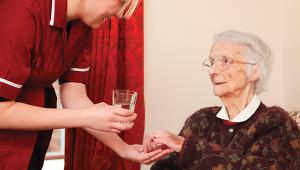The PAC said staff shortages and other weaknesses mean the health and social care watchdog continues to short change taxpayers with its slow, ineffective and sometimes erroneous performance.
PAC chair Meg Hillier explained there is “too often a long gap between inspections and reports being published” and an “alarming lack of attention to detail” while they are being prepared.
In addition, CQC reports can be littered with inaccuracies. “One NHS foundation trust told us staff had identified more than 200 errors in a draft commission report, including data inaccuracies,” Hillier said.
“The fact these errors were picked up offers some reassurance, but this is clearly unacceptable from a public body in which taxpayers are placing their trust.”
Hillier noted that one cause for concern is the pace of recruitment at the CQC. The PAC found the vacancy rates for inspectors, senior analysts and managers were all around 35% in April 2015, and staffing gaps were not expected to be filled until June next year. In addition, staff turnover was 8%, much higher than the commission’s 5% target rate.
The PAC said that, as a result of these staffing problems, the CQC is not meeting its own trajectory for completing inspections and cannot therefore identify risks. Members of the public also “do not have up-to-date, independent information” about care quality, Hillier said.
In addition, the watchdog has been slow to act on alerts from patients, carers and staff about care quality, and issues raised by whistleblowers are not adequately addressed, the report found.
Other PAC criticisms included a lack of means by which parliament and the public can measure the CQC’s performance – a problem that was flagged by the committee back in 2012 but has still not been addressed ‒ and a failure to look across organisational boundaries and take into account the overall quality and safety of patient care which often consists of GP, hospital and community services.
The PAC also noted that the CQC does not expect to be able to fully live up to its new responsibility for assessing hospital’s use of resources until almost a year after it comes into effect in April 2016.
This risks giving the public the impression the commission is providing full assurance over the health and care sectors’ use of resources when it will not really be doing so until January 2017, the PAC said.
Hillier urged the CQC to set out “a coherent plan” for managing its new responsibilities and make improvements in the way it “collects, acts upon and publishes information”.
She added: “When the commission falls short, there must be robust measures in place to enable parliament and the public to hold it to account.”
The PAC also said it expects to see improvements in the quality and timeliness of the CQC’s reports within a year, information from the CQC regarding staffing levels, how the CQC intends to deliver its programme of inspections in the face of substantial funding reductions and how it plans to approach its new responsibilities.
“We have serious concerns about adding responsibility to the commission when it is not yet delivering on its inspections,” the PAC wrote.
David Behan, chief executive of the CQC, said the commission has always maintained there is more to do, especially in regards to improving the timeliness of reports.
The issues raised are not new, he said, and the CQC has been “working hard” to improve performance, reports on its progress publicly every month and does not take any short cuts that could compromise the quality of its work.
He said the public are increasingly confident in the commission’s “new and more rigorous approach” and the better information it provides, progress has been made in recruitment, concerns are acted on in a number of ways and the commission is working with stake holders to ensure it is ready to take on its new responsibilities.
“We are not complacent and we are working confidently to continue to improve what we do and how we do it.
“We are pleased that the PAC has acknowledged the ‘substantial progress’ that the organisation has made over the past three years and we have continued to make progress,” he said.




















